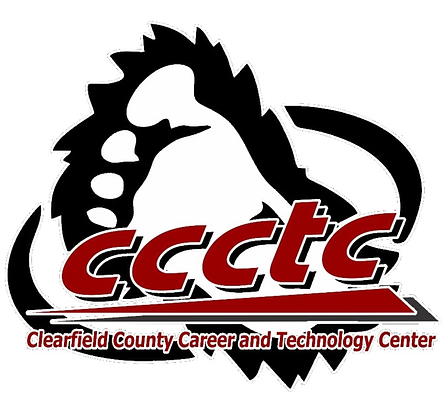Culinary Arts & Food Management
The ProStart National Certificate of Achievement (COA) is an industry-recognized certificate that signifies a strong foundation in the basic management and culinary skills considered critical to success by industry leaders.
The ProStart National COA is your passport to the future. Earning the COA can give you a leg up in your job search and opens the door to collegiate opportunities. Numerous restaurant, foodservice and hospitality programs offer benefits to ProStart graduates including more than 60 colleges.
Instructor:
Chef Sierra Coulter
Email Chef Sierra Coulter
814-765-5308
CIP CODE: 12.0508
Food service is a challenging and rewarding profession that employs millions of people. It is an industry that grows each year. Americans are eating out more than ever. According to the National Restaurant Association, this year restaurants served 68 million more meals each week than they did just five years ago. That means more job opportunities for you!
Areas of Instruction
Units Covered:
Sanitation
Sauces
Meats
Soups
Salads
Safety
Sandwiches
Short Orders
Banquets
Baking
Service
Practical Experience:
We use modern equipment that is updated with the industry standards. Food service is a production shop. CCCTC Culinary students cater school functions and serve staff lunches, plus have a hands-on dining room operation.
Career Information:
Chef career opportunities include catering, fine dining, franchises, hotels and many other food-related environments. No matter where you find work as a chef, a culinary arts education provides the backbone of knowledge and skills to help you land your first position.
What are the Benefits?
$799 billion: Restaurant industry sales. (Source: 2017 State of the Industry)
1 million+: Restaurant locations in the United States.
14.7 million: Restaurant industry employees.
1.6 million: New restaurant jobs created by the year 2027.
10%: Restaurant workforce as part of the overall U.S. workforce.
9 in 10: Restaurant managers who started at entry level.
8 in 10: Restaurant owners who started their industry careers in entry-level positions.
Food service managers tend to earn the most with an average salary of $56,200 (BLS May 2015 Data), which is down from $58,190 a year ago (BLS May 2014 data). Pennsylvania food service managers’ salaries rank 17th among the 50 states, ahead of North Dakota and behind Texas. The top 10% of food service managers earn over $90,000, well above the average. Food service managers also have the most wage variability.
Skills Needed:
To meet the demands of a work force that has little or no time to cook, new restaurants are opening all the time. To be a part of culinary arts profession, the following qualifications are needed:
Good attitude
Basic math knowledge
Creativity
Computer skills
Basic science
Good reading ability
Physical strength and endurance
Good health
Hand-eye coordination
Finger dexterity
College Credits available in Culinary Arts and Food Management From:
Pittsburgh Technical Institute
St. Francis University
PA College of Technology
Commonwealth Technical Institute
Excelsior College
Soar Credits
Adult Education Information
Cost: $7,000.00 - Includes books, ServSafe, NOCTI and OSHA Certification
Estimated expenses not included in tuition:
Criminal Record Check - $22.00
Child Abuse Clearance - $13.00
Federal Criminal History Record-$23.85
Uniforms - $100.00
Non-skid shoes/sneakers - $30.00
$300.00 deposit that will go toward tuition
Academic Year: 9 months/900 hours
Start Date: August
Schedule: Monday-Friday , 8:30 am-2:30 pm
Books included in tuition:
ISBN 9780138019389
ISBN 9781582803357
Foundations of Restaurant Management & Culinary Arts: Leer
National Restaurant Association
